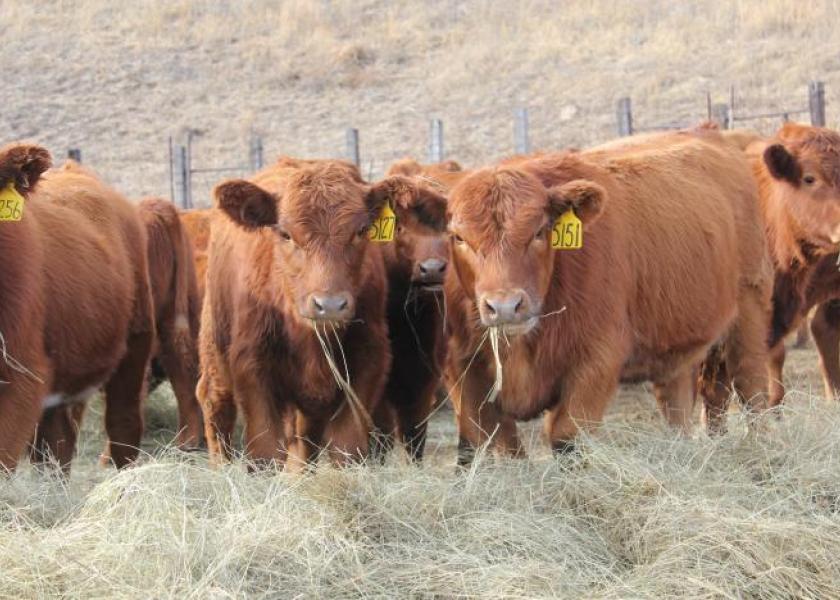Managing Calves Prior to Weaning

As college kids leave home for the first time, it is important that they transition with a plan that includes being current on immunizations, following good study habits, establishing self-control at the buffet counter and having financial support in place so they have the greatest chance for success in their new environment.
In much the same way, calves are most successful in transitioning off the farm when they’ve had good care, are current on their vaccinations, and have been exposed to the challenges of a changing diet. For the experts at the Kansas State University Beef Cattle Institute, many of these factors occur before weaning to minimize the stress of change.
“The goal of any pre-conditioning program should be to prepare the calf for the next event in its life,” said Bob Weaber, K-State beef cattle extension specialist. Pre-conditioning refers to the care the calf gets on the ranch before it’s weaned and before it enters the feedlot or a stocker operation.
From a health standpoint, vaccinations should be given while the calf is still nursing its dam, said K-State veterinarian Bob Larson.
“The best immune response to vaccinations will happen when the calves are not stressed and they are not carrying a parasite load,” Larson said. He added that immunity often does not reach effective levels until about three weeks after the vaccines are administered.
Another step in preparing the male calves is to have them castrated. The veterinarians advise cow-calf producers to take care of that early in the calf’s life.
“Castrating calves when they are two to three months of age causes minimal stress, allowing them to recover quickly. But the older the calf is when he has that done, the more it will challenge him,” Larson said.
Along with taking care of the animal’s health needs, the experts said it is important to train the calves to eat from a feed bunk and locate the type of water source they will see during the next phase of life.
“If the calves get dehydrated and aren’t eating, then their immune response will be weakened,” Larson said.
Part of that preparation may include letting them drink from a cattle waterer instead of a pasture pond, Weaber said. Exposing them to grain prior to weaning will help them make the transition to the backgrounding operation easier, as well. Backgrounding refers to co-mingling weaned calves of a similar age and continuing to grow them prior to entering the feed yard.
To build the best pre-conditioning program, the experts recommend the following:
- Prepare the calves for their new environment by exposing them to new water sources and feed.
- Manage the nutritional needs of the calves.
- Minimize stressors prior to weaning.
- Stimulate immunity through a vaccination program that matches the disease challenges those calves are going to face.
- Create a comprehensive plan for understanding optimum pre-weaning activities.
To hear the full discussion on caring for calves prior to weaning, listen to the BCI Cattle Chat podcast online.







